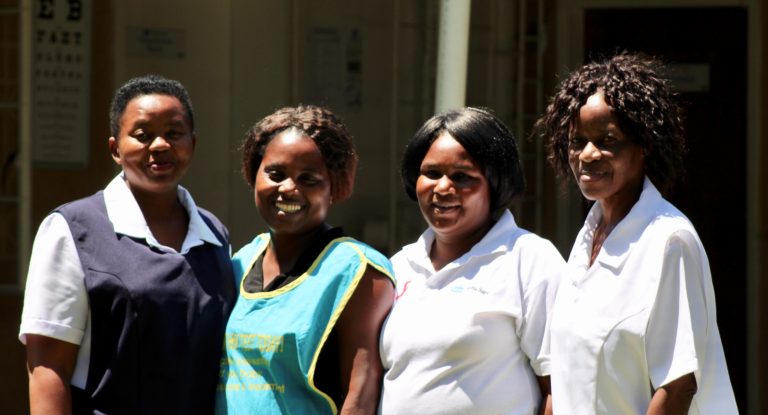
Written by Mali Kambandu, Communications Officer, BID Initiative Zambia and originally published on Bid Initiative’s blog.
A common misconception about some older health workers is they might not be able to grasp new technologies. In some cases, these staff members fear there is a steep learning curve to master the tools, or the electronic tools might take over some of their tasks, making them redundant.
There are several health workers shattering these misconceptions. They even joke about their age, calling themselves ‘born before computers’ or ‘BBCs.’
Moonde RHC in Kalomo District is managed by Hopeful Siyalubala, 55, who has worked as a nurse for 28 years. She first used a computer in 2012 but now only uses them periodically for some of her tasks. During the orientation and training on data quality and data use interventions, Sister Hopeful took a keen interest in learning how to use the Zambia Electronic Immunisation Registry (ZEIR) and could immediately see its application in her daily work.
“We have paper-based Reach Every Child (REC) books which community health workers use from time to time to locate children. However, with the increasing numbers of children attending the Children’s Clinic, the process can be cumbersome and ineffective as they have more than one book and it is difficult to follow up on defaulters. The ZEIR clearly shows alerts for overdue children on the home screen,” said Sr. Hopeful.
Also working at Moonde RHC is Edith Kamenda, 60, a maternal and child health nurse. After 38 years in the health service, Edith has had some experience with computers, but requires more day-to-day use to truly master the app.
“I appreciate the benefits that better data will bring to our community. Improved data will guide us to know how many children are coming according to the targets — whether monthly, quarterly or annually. We will have more accurate numbers of the necessary vaccines that have been given and how much we are impacting the disease burden of vaccine-preventable diseases. Lastly, the ZEIR will help us know which areas have a lot of children. This will enable us to plan which residential areas we need to increase the number of our outreach staff or other measures.”
The older health workers are not deterred by the new technology being incorporated into their work, and have embraced it with enthusiasm. This enthusiasm and vision helps to drive the data use interventions forward in Southern Province.
“Change is inevitable and things are changing every day. Hence, we are ready to fit ZEIR in the clinic work flows so we are more efficient and effective in the services we deliver,” says Sr. Hopeful.